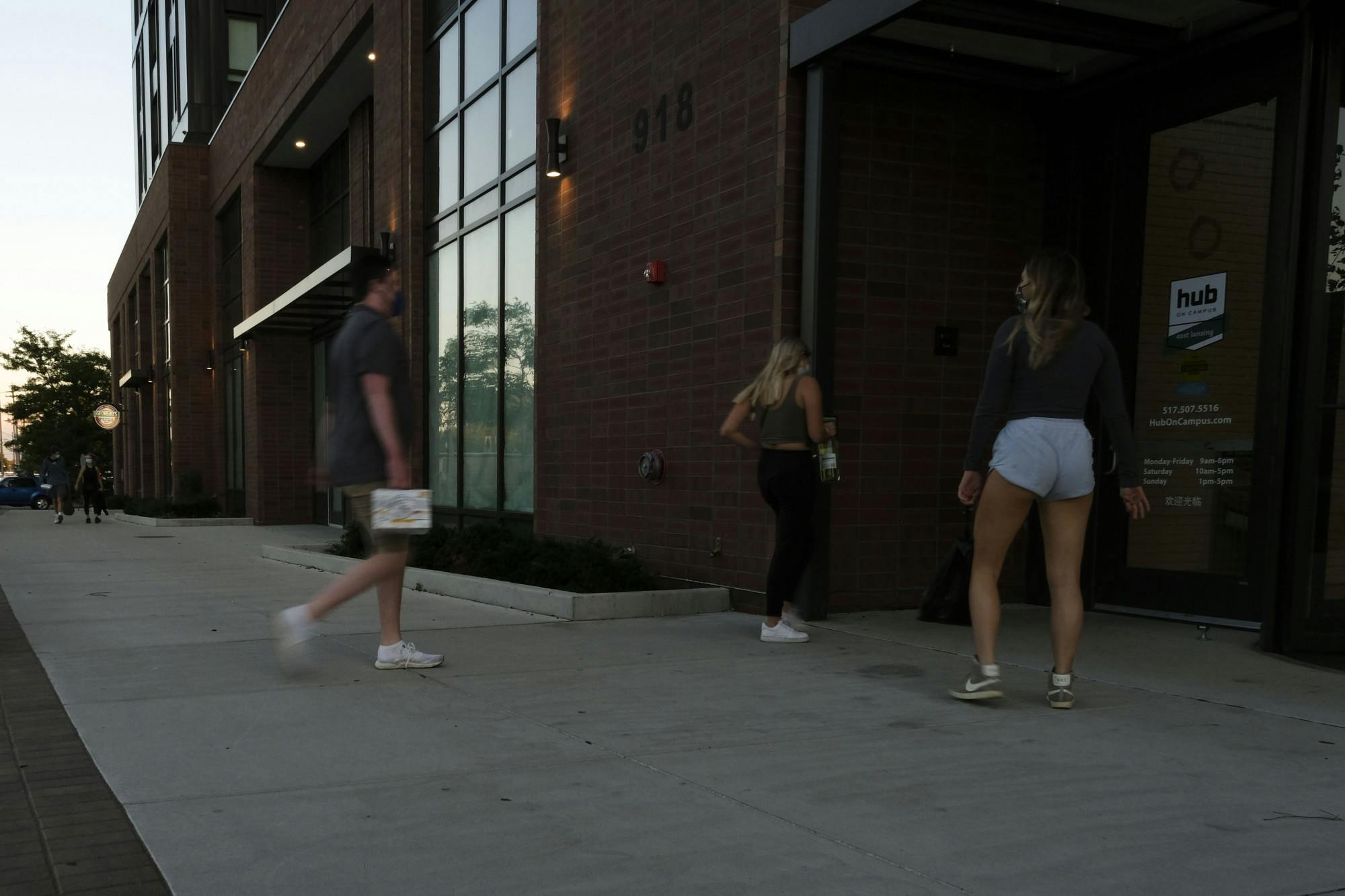With Michigan State University’s shift to a remote learning model for the fall semester encouraging off-campus students to consider staying home, many who had already signed outside leases were left with questions and frustrations for the coming months.
In a letter to the Spartan community, President Samuel L. Stanley Jr. said they are working with partners in the city of East Lansing and the Ingham County Health Department to create the safest environment possible, though he urged students to consider where the safest place for them would be.
For information science senior Chase Maples who had signed a lease with his brother at The Tower apartments in East Lansing, he said he is hoping MSU does something to help their students who are now moving back unnecessarily.
“In actuality, MSU doesn’t have any sort of obligation to help us," Maples said. "We are the ones who signed contracts, right. We are the ones who signed the leases. But on the other hand, we also had signed that not expecting there was going to be a global pandemic, expecting that we were going to be going to go to school full-time with in-person teaching."
According to the U.S. Department of Housing and Urban Development, a majority of undergraduate students will choose to live off-campus. With that majority signing housing contracts in the city because of MSU, Maples said they should have announced their decision significantly sooner.
“It is huge — it’s a multi-million dollar school," Maples said. "They knew that when football and basketball and all the athletics were canceled, they knew they weren’t going to be making much revenue, so why did they even bother having the dorm rooms? … The biggest thing that my brother and I have experienced is with these leasing companies, it’s a cash grab. Just like the school itself, they surround themselves by it. They don’t really (care) about the tenants.”
Chase’s brother and an MSU senior, Chandler, expressed similar feelings, stating neither the leasing companies nor MSU are going to make any sort of reparations for these students. If he were to move into his apartment off-campus, expenses like utility bills would be heightened with no need to leave the apartment.
Journalism senior Connor Smithee said he had signed his lease back in December before anyone knew that COVID-19 would be an issue.
“Here we are now, I was unemployed for about four months, so you know, I’m trying to make ends meet paying rent on an apartment I don’t necessarily need,” Smithee said. “Like I said, no one ever heard of coronavirus, I’m not blaming the university … I signed the lease. I took full responsibility for that. The payments are on me. It’s my fault, but nobody knew this was going to happen. So, I’m not blaming anybody for this.”
Had he known that classes would be going online, Smithee said he would have either not signed a lease at all, or he would have looked for someplace cheaper to live.
Smithee said he brought the issue up to his landlords, hoping they would be willing to compromise a small portion of the monthly rent, but he was not met with a warm response.
“It was very tone deaf the way they talked to me," Smithee said. "It wasn’t kind. There was no sense of appreciation or kindness or anything. It was very much like, ‘This is the way it is. You signed a contract. Deal with it,’ and that to me was very rude almost."
Ultimately, Smithee said his biggest concern is in terms of students’ mental health.
“Just thinking about the fact that they’ll be alone in either their apartment or the couple of people that do stay on-campus in a dorm room, they’ll pretty much be alone all day, and I think that’s going to have a lot of long-lasting effects on students’ mental health,” Smithee said.
Moving forward, with many students who had planned to live on-campus seemingly looking to sublease apartments for the fall, Smithee said those students are going to run into problems if they sign a full year lease and MSU wants them back on campus in the spring.
In a post, MSU Live On said it is not intended for students to obtain off-campus housing in the cancellation of their on-campus housing assignments.
The city of East Lansing launched the COVID-19 Emergency Rental and Mortgage Assistance Program on Aug. 10 to provide emergency support to income-eligible residents experiencing financial hardships during COVID-19.
According to a release, applicants meeting income eligibility requirements can apply to receive up to $2,000 in grant assistance toward outstanding rent or mortgage payments.
Applicants must reside within city limits and provide documentation of a COVID-19 related hardship, the release said. Funding is currently in place to allow up to 100 households to receive grants.
This article is part of our Welcome Week print edition. Read the full issue here.
Support student media!
Please consider donating to The State News and help fund the future of journalism.
Discussion
Share and discuss “MSU off-campus students react to the shift to online learning” on social media.








